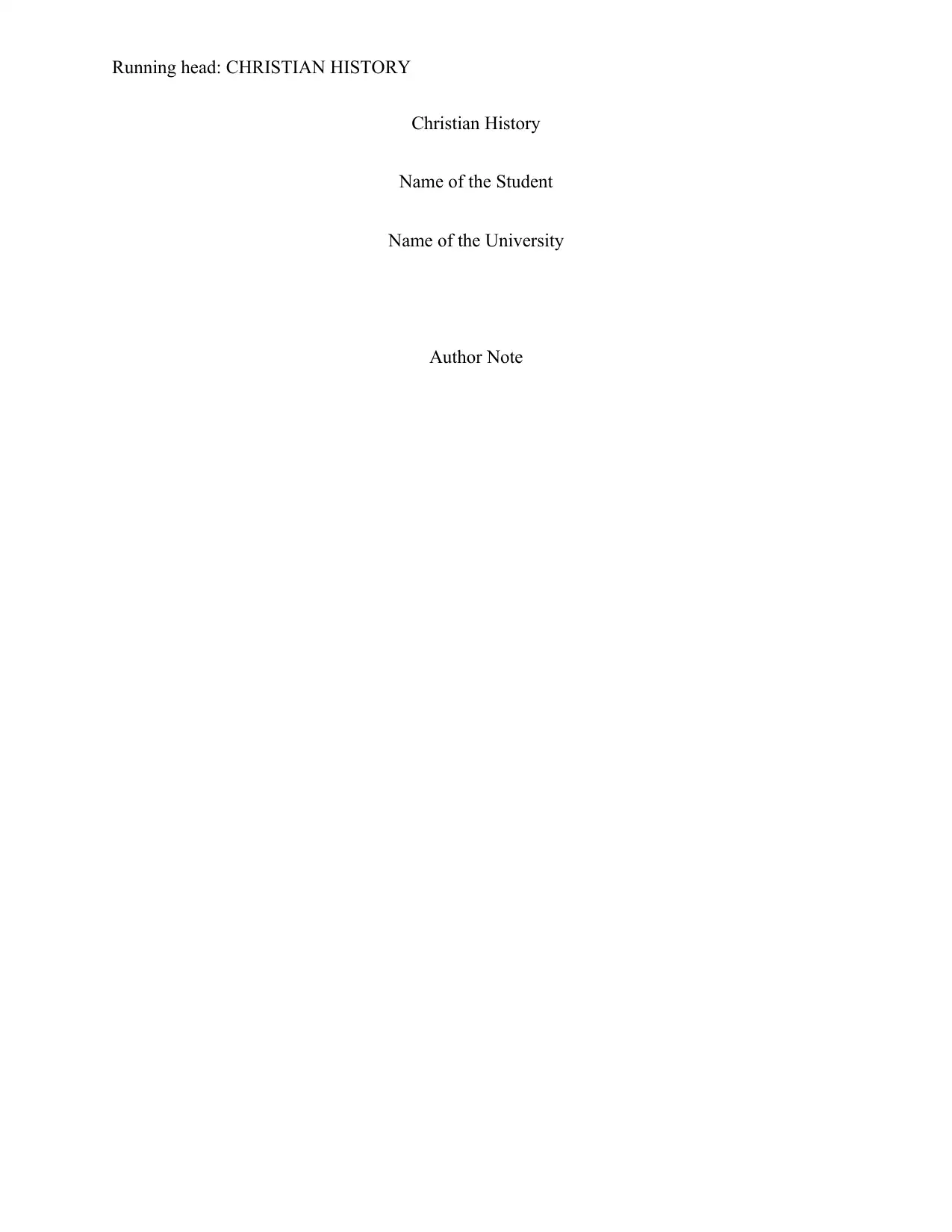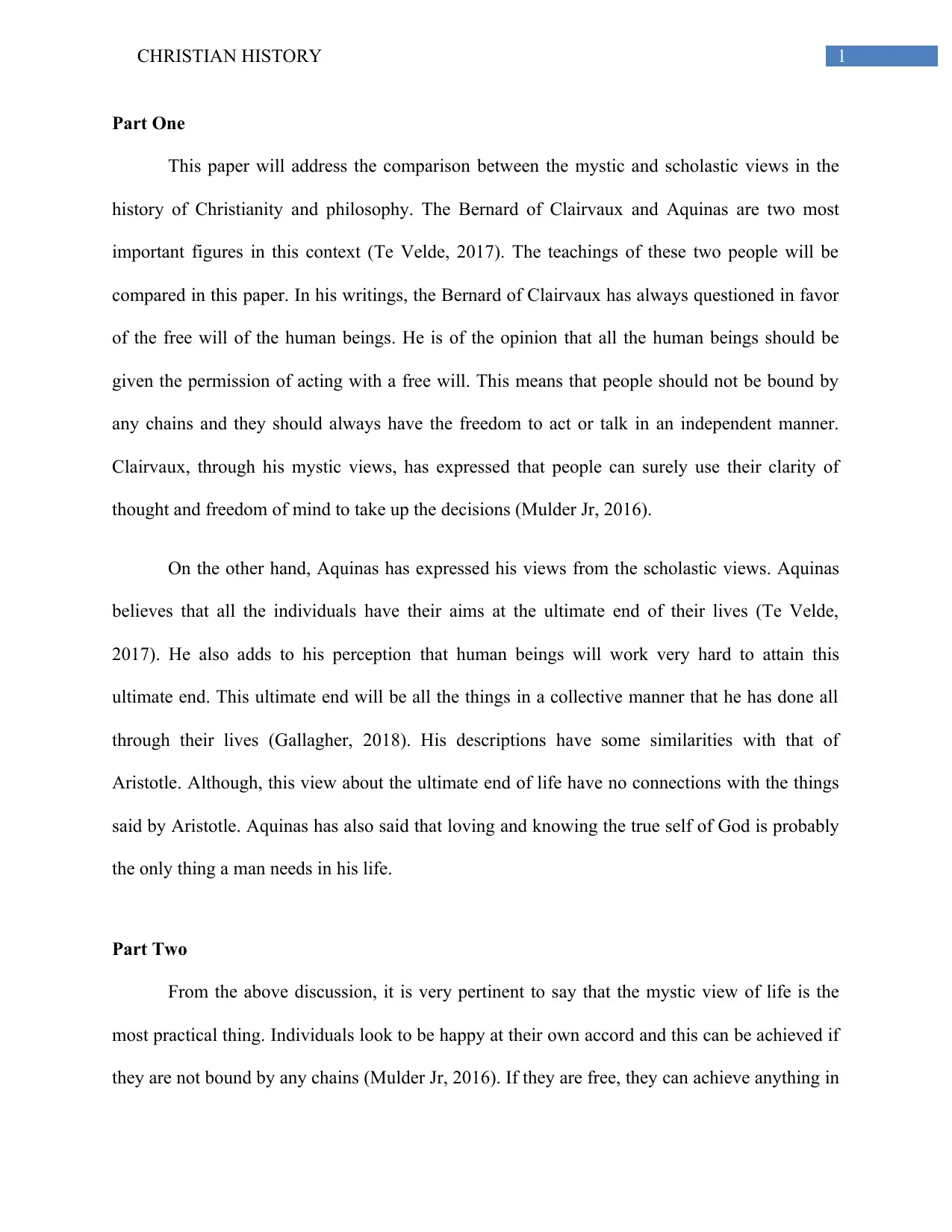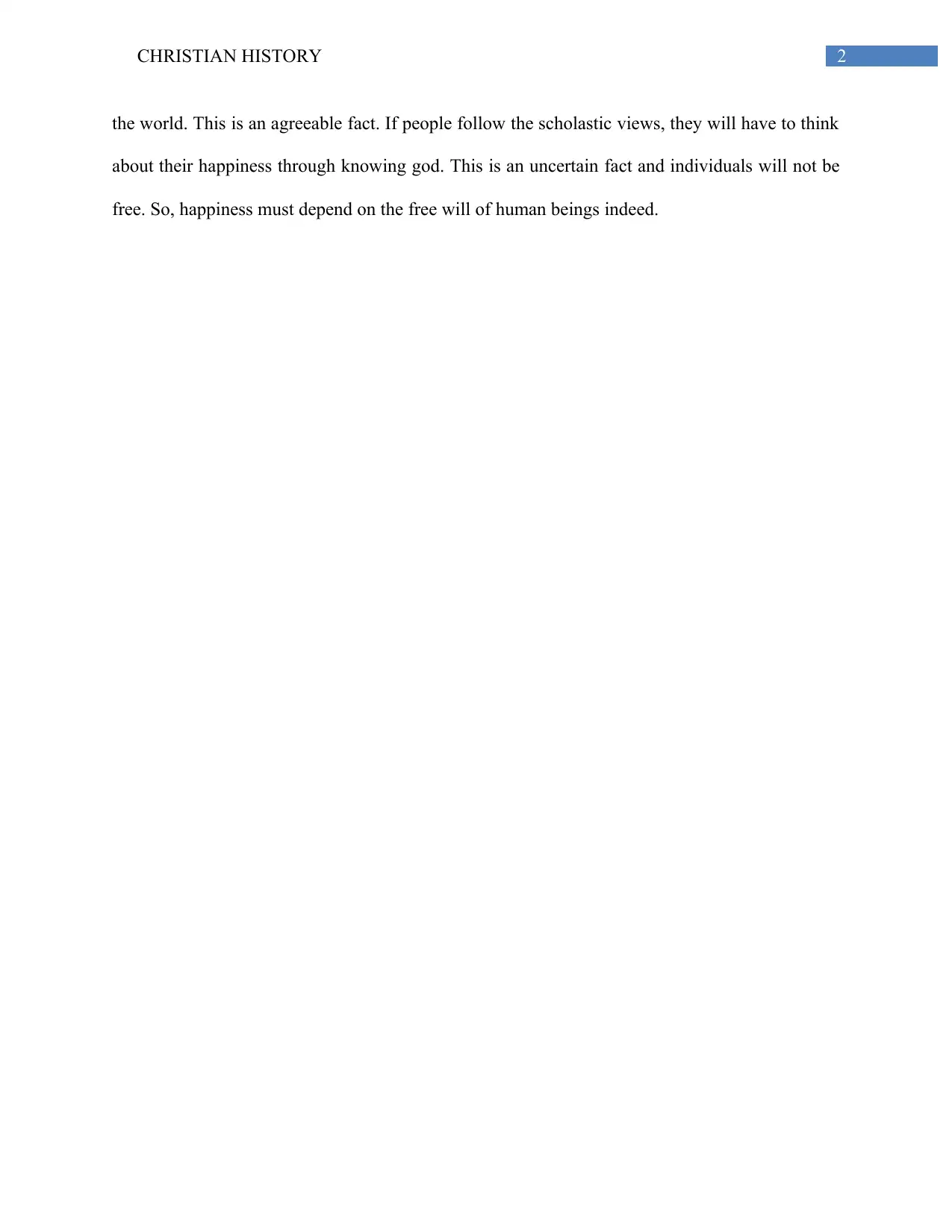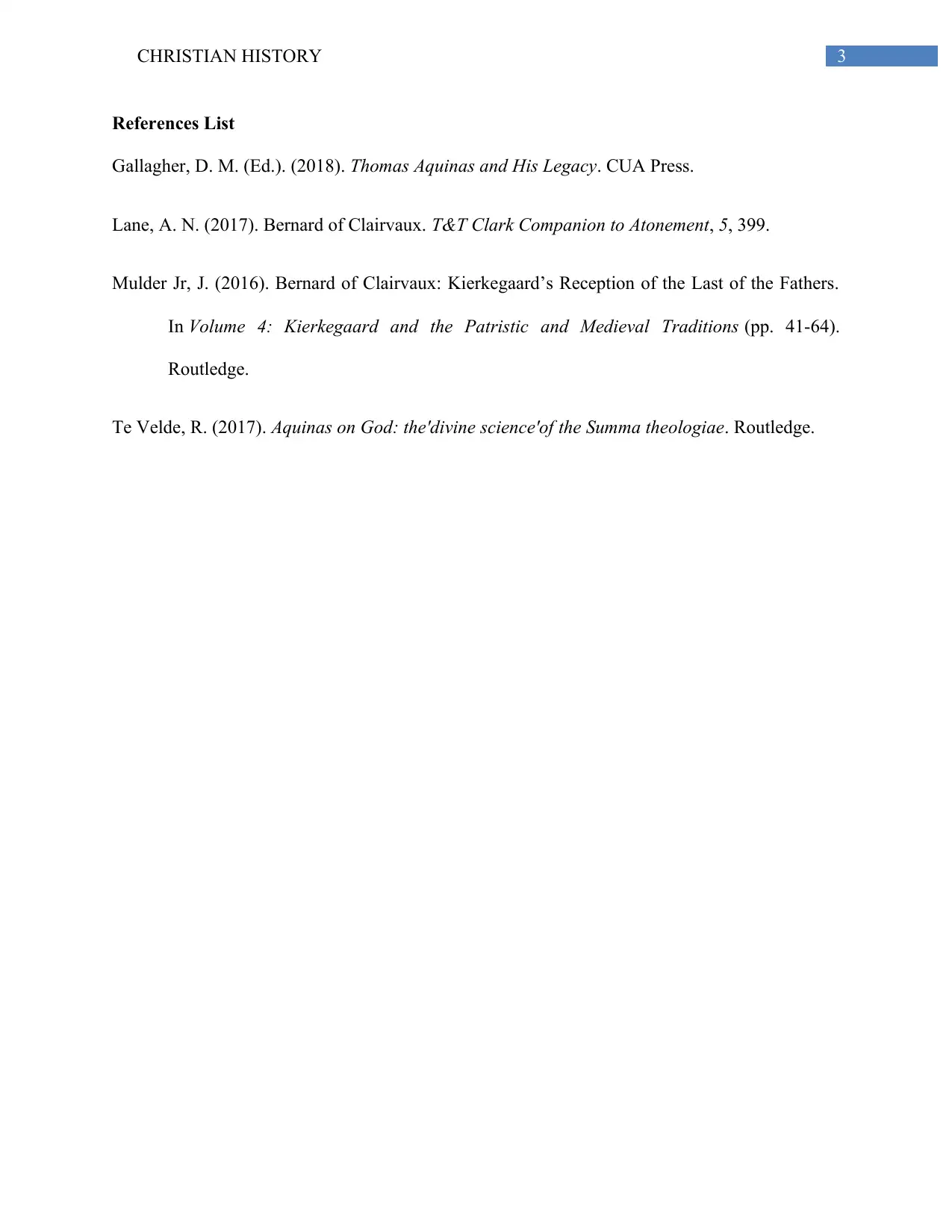Thomas Aquinas and His Legacy
VerifiedAdded on 2022/09/18
|4
|548
|21
AI Summary
Contribute Materials
Your contribution can guide someone’s learning journey. Share your
documents today.

Running head: CHRISTIAN HISTORY
Christian History
Name of the Student
Name of the University
Author Note
Christian History
Name of the Student
Name of the University
Author Note
Secure Best Marks with AI Grader
Need help grading? Try our AI Grader for instant feedback on your assignments.

1CHRISTIAN HISTORY
Part One
This paper will address the comparison between the mystic and scholastic views in the
history of Christianity and philosophy. The Bernard of Clairvaux and Aquinas are two most
important figures in this context (Te Velde, 2017). The teachings of these two people will be
compared in this paper. In his writings, the Bernard of Clairvaux has always questioned in favor
of the free will of the human beings. He is of the opinion that all the human beings should be
given the permission of acting with a free will. This means that people should not be bound by
any chains and they should always have the freedom to act or talk in an independent manner.
Clairvaux, through his mystic views, has expressed that people can surely use their clarity of
thought and freedom of mind to take up the decisions (Mulder Jr, 2016).
On the other hand, Aquinas has expressed his views from the scholastic views. Aquinas
believes that all the individuals have their aims at the ultimate end of their lives (Te Velde,
2017). He also adds to his perception that human beings will work very hard to attain this
ultimate end. This ultimate end will be all the things in a collective manner that he has done all
through their lives (Gallagher, 2018). His descriptions have some similarities with that of
Aristotle. Although, this view about the ultimate end of life have no connections with the things
said by Aristotle. Aquinas has also said that loving and knowing the true self of God is probably
the only thing a man needs in his life.
Part Two
From the above discussion, it is very pertinent to say that the mystic view of life is the
most practical thing. Individuals look to be happy at their own accord and this can be achieved if
they are not bound by any chains (Mulder Jr, 2016). If they are free, they can achieve anything in
Part One
This paper will address the comparison between the mystic and scholastic views in the
history of Christianity and philosophy. The Bernard of Clairvaux and Aquinas are two most
important figures in this context (Te Velde, 2017). The teachings of these two people will be
compared in this paper. In his writings, the Bernard of Clairvaux has always questioned in favor
of the free will of the human beings. He is of the opinion that all the human beings should be
given the permission of acting with a free will. This means that people should not be bound by
any chains and they should always have the freedom to act or talk in an independent manner.
Clairvaux, through his mystic views, has expressed that people can surely use their clarity of
thought and freedom of mind to take up the decisions (Mulder Jr, 2016).
On the other hand, Aquinas has expressed his views from the scholastic views. Aquinas
believes that all the individuals have their aims at the ultimate end of their lives (Te Velde,
2017). He also adds to his perception that human beings will work very hard to attain this
ultimate end. This ultimate end will be all the things in a collective manner that he has done all
through their lives (Gallagher, 2018). His descriptions have some similarities with that of
Aristotle. Although, this view about the ultimate end of life have no connections with the things
said by Aristotle. Aquinas has also said that loving and knowing the true self of God is probably
the only thing a man needs in his life.
Part Two
From the above discussion, it is very pertinent to say that the mystic view of life is the
most practical thing. Individuals look to be happy at their own accord and this can be achieved if
they are not bound by any chains (Mulder Jr, 2016). If they are free, they can achieve anything in

2CHRISTIAN HISTORY
the world. This is an agreeable fact. If people follow the scholastic views, they will have to think
about their happiness through knowing god. This is an uncertain fact and individuals will not be
free. So, happiness must depend on the free will of human beings indeed.
the world. This is an agreeable fact. If people follow the scholastic views, they will have to think
about their happiness through knowing god. This is an uncertain fact and individuals will not be
free. So, happiness must depend on the free will of human beings indeed.

3CHRISTIAN HISTORY
References List
Gallagher, D. M. (Ed.). (2018). Thomas Aquinas and His Legacy. CUA Press.
Lane, A. N. (2017). Bernard of Clairvaux. T&T Clark Companion to Atonement, 5, 399.
Mulder Jr, J. (2016). Bernard of Clairvaux: Kierkegaard’s Reception of the Last of the Fathers.
In Volume 4: Kierkegaard and the Patristic and Medieval Traditions (pp. 41-64).
Routledge.
Te Velde, R. (2017). Aquinas on God: the'divine science'of the Summa theologiae. Routledge.
References List
Gallagher, D. M. (Ed.). (2018). Thomas Aquinas and His Legacy. CUA Press.
Lane, A. N. (2017). Bernard of Clairvaux. T&T Clark Companion to Atonement, 5, 399.
Mulder Jr, J. (2016). Bernard of Clairvaux: Kierkegaard’s Reception of the Last of the Fathers.
In Volume 4: Kierkegaard and the Patristic and Medieval Traditions (pp. 41-64).
Routledge.
Te Velde, R. (2017). Aquinas on God: the'divine science'of the Summa theologiae. Routledge.
1 out of 4
![[object Object]](/_next/static/media/star-bottom.7253800d.svg)
